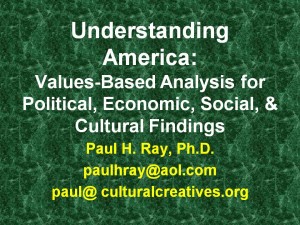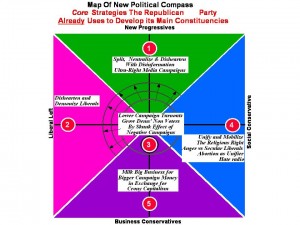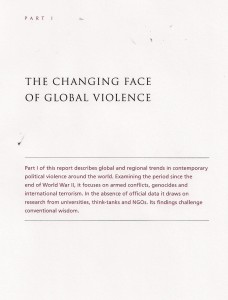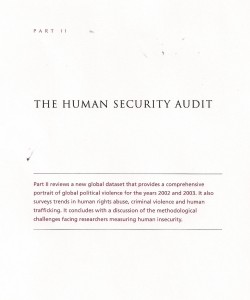Core Quote: “Under the condition of double contingency, every self-commitment, however accidentally arisen or however calculated, will acquire information and connective value for the action of others. Precisely because such a system is formed in a closed and self-referential way — namely A is determined by B and B by A — every accident, every impulse, every error is productivec [of the social system]….Without ‘noise,' no system.” Citing Niklas Luhmann, Social Systems, Writing Science (Stanford, CA: Stanford University Press, 1995), p. 116.
Reference: How Not to Study the World-Wide Web (WWW)
Advanced Cyber/IO, Articles & Chapters, Cultural IntelligenceABSTRACT: In his book, Linked: How Everything is Connected to Everything Else and What it Means for Business, Science, and Everyday Life, Albert-Laszlo Barabasi gives us a detailed analysis of the typology of the WWW. In so doing, he makes many errors from which we can derive important lessons about ways not to study the WWW or complex networks in general. These lessons are crucial from the point of view of the philosophy of science, and suggest that more care and reflecivity is called for in pursuing WWW research. This paper is intended to provided imputus for meaningful thought and further discussion.
CONTENTS:
Introduction: Quality and Quantity
Network Analysis (Analytical Dimensioins of Networks, Robot Typology, Network Density, Assessing the Value of Hubs and Non-Hubs, The Effect of Search Engines on Typology)
Static Quality (Proportional Linkage, Website Design, Valuable Referrers, The Effect of Closeness)
Dynamic Quality (The Myth of Fitness, Competition is Cooperation, Survival of the Fitters, Innovation Changes the Landscape, Limits to Growth, Alternative Norms to Preferential Treatment
Conclusion: Getting It Right
Reference: 21st Century Governance as a Complex Adaptive System
Advanced Cyber/IO, Articles & Chapters, Cultural IntelligenceABSTRACT: The Information Revolution combined with connective technologies creates a unique global social network. This network is vulnerable to cascades of information, norms, and coordinated action. The inherent unpredictability of the information society demands new kinds of governance that focus on rapid network-coordinated response over centralized predictive planning.
CORE QUOTE: “Power, as the capacity to impose behavior, lies in the networks of information exchange and symbol manipulation, which relate social actors, institutions, and cultural movements.” Citing M. Castells, End of Millenium (Oxford, UK: Blackwell Publishers, 2000), p. 379.
2006 Pelton (US) Recommends The Changing Face of Global Violence
10 Security, Cultural Intelligence, Historic Contributions, Peace Intelligence2006 Yekelo (ZA) Continental Early Warning & Information Sharing: A Military Perspective on Deterring & Resolving Complex Emergencies
Communities of Practice, Cultural Intelligence, Historic Contributions, Peace Intelligence
South Africa, Military and Civilian Intelligence Community
IOP '06 Under the general leadership of Minister of Intelligence Services Ronnie Kasrils, in partnership with an extraordinary collection of individuals across all elements of the South African intelligence community, and across all countries in the continent of Africa, successfully implemented both an open source software strategy, and an early warning and open source information sharing strategy. Their continental initiative, in its openness, low cost, and mutually beneficial architecture, sets the standard for multinational, multiagency, multidisciplinary, multidomain information sharing (M4 IS).
When Nelson Mandela ended arpartheid and an integrated government was formed, the very best of the revolutionaries of color went into intelligence. President “JZ” Zuma of South Africa is himself director of intelligence for the ANC in exile and resistance. They inherited a brand new campus built by the previous regime, and the South African National Academy of Intelligence (SANAI) has proven to be both an internal and a continental asset. It introduced Open Source Intelligence (OSINT) in the 1990's, and understood far sooner than most that OSINT and the traditional secret collection disciplines have to interact “as with a DNA spiral” in the words of the Director General of National Intelligence at the time.

Representing Minister Kasrils at OSS '06 was Brigadier General Gordon Mzwandile Yekelo, Director, Doctrine Development, Joint Operations Division, South African Armed Forces, who shared his views on “Continental Early Warning & Information Sharing: A Military Perspective on Deterring & Resolving Complex Emergencies.” Today, in 2009, SANAI is about to offer world-class training to the eight tribes of intelligence across all of Africa, and with integrity and persistence, may yet create a Smart Continent Of, By, and For Africans.
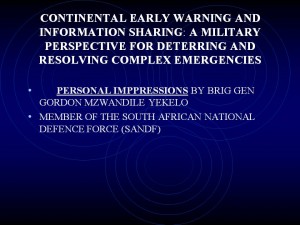
Reference: Online Language Overview
Cultural Intelligence

Author’s Note: This is an on line version of a paper that Mike Bergman recently released under the auspices of BrightPlanet Corp The citation for this effort is:
M.K. Bergman, “Tutorial: Internet Languages, Character Sets and Encodings,” BrightPlanet Corporation Technical Documentation, March 2006, 13 pp.
Yoshiki Mikami, who runs the UN’s Language Observatory, has an interesting way to summarize the languages of the world. His updated figures, plus some other BrightPlanet statistics are:
. . . . . . .
Category Number Source or Notes
Active Human Languages 6,912 from www.ethnologue.com
Language Identifiers 440 based on ISO 639
Human Rights Translation 327 UN’s Universal Declaration of Human Rights
Unicode Languages 244 See text
DQM Languages 140 Estimate based on prevalence, BT input
Windows XP Languages 123 From Microsoft
Basis Tech Languages 40 Based on Basis Tech’s Rosette Language Identifier
Google Search Languages 35 From Google
2004 Ray (US) Values in America and the New Political Compass
11 Society, Civil Society, Cultural Intelligence, Historic Contributions
Paul Ray came to our attention as a result of his writing, with his life-long partner Sherri Ruth Anderson, CULTURAL CREATIVES: How 50 Million People Are Changing the World.
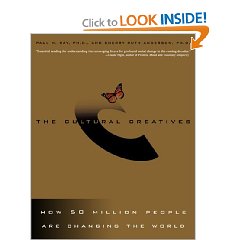
In 2004 he was well into his new work, and had introduced the avant guarde to the “New Political Compass,” which can be seen in full page color size at www.oss.net/PIG where it is the third side in from the cover. Clicking on his photo above leads to the 2004 article that captured a great deal of respect everywhere except within the two-party tyranny that has been “Running on Empty” and in “Breach of Trust” since at least the 1970's. Below are his two presentations to OSS '04.
